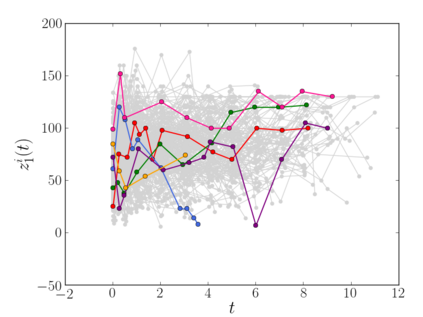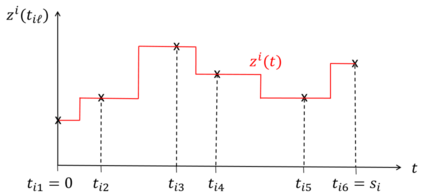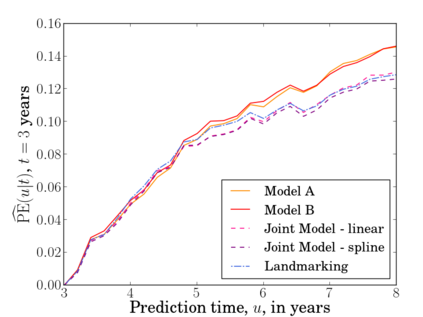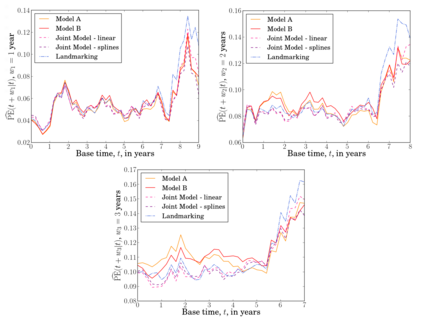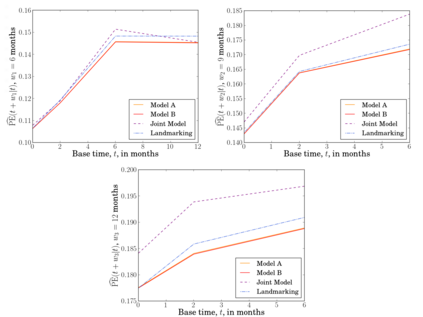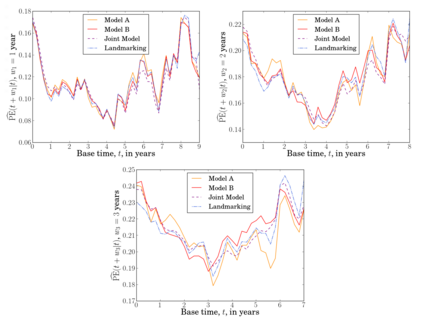Predicting patient survival probabilities based on observed covariates is an important assessment in clinical practice. These patient-specific covariates are often measured over multiple follow-up appointments. It is then of interest to predict survival based on the history of these longitudinal measurements, and to update predictions as more observations become available. The standard approaches to these so-called `dynamic prediction' assessments are joint models and landmark analysis. Joint models involve high-dimensional parametrisations, and their computational complexity often prohibits including multiple longitudinal covariates. Landmark analysis is simpler, but discards a proportion of the available data at each `landmark time'. In this work we propose a `retarded kernel' approach to dynamic prediction that sits somewhere in between the two standard methods in terms of complexity. By conditioning hazard rates directly on the covariate measurements over the observation time frame, we define a model that takes into account the full history of covariate measurements but is more practical and parsimonious than joint modelling. Time-dependent association kernels describe the impact of covariate changes at earlier times on the patient's hazard rate at later times. Under the constraints that our model (i) reduces to the standard Cox model for time-independent covariates, and (ii) contains the instantaneous Cox model as a special case, we derive two natural kernel parameterisations. Upon application to three clinical data sets, we find that the predictive accuracy of the retarded kernel approach is comparable to that of the two existing standard methods.
翻译:根据观察到的共变情况预测患者生存概率是临床实践中的一项重要评估。这些特定患者的共变情况往往通过多次后续任命来测量,因此,根据这些纵向测量的历史预测生存情况,并在获得更多的观测结果时更新预测情况是有意义的。这些所谓的“动态预测”评估的标准方法是联合模型和里程碑式分析。联合模型涉及高维参数,其计算复杂性往往禁止包括多个纵向共变情况。陆地标志分析比较简单,但每个“地标时间”都放弃一定比例的可用数据。在此工作中,我们提议采用“内核”方法,以动态预测处于两种标准方法的复杂程度之间。通过直接根据观察时间框架的共变数测量调整危险率的标准方法,我们定义了一种模型,考虑到全方位变量测量历史,但比联合模拟更实际和容易。依靠时间的关联内核内核内核部分描述了在早期的变换模型变化影响,而我们从两个时间级模型到时间的精确度标准值,我们用C级模型, 将模型到后期的自然危害率。



